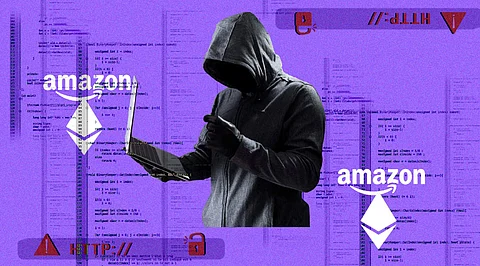
- Insights
- Cryptocurrencies
- Stocks
- White Papers
- Industry
- Geography
- Insights
- Cryptocurrencies
- Stocks
- White Papers
- Industry
- Geography


Have you ever pondered why so many Web2 company names are shortened versions of non-vowel dictionary words? Consider sites like Twitter, Tumblr, Flickr, etc (originally named Twttr).
Sometimes trademarking the tweak is easier. Startups, however, are sometimes hampered by the long-standing practice of "cybersquatting," in which investors buy domain names that contain popular words or well-known trademarks to sell them to the trademark's legitimate owner for a profit (for instance, tiktokcharts.com, secure-wellsfargo.org, or paypal.net) (TikTok, Wells Fargo, and PayPal).
After widespread cybersquatting caused problems for some of the biggest corporations in the world, politicians established the Uniform Domain-Name Dispute-Resolution Policy and the Anti-Cybersquatting Consumer Protection Act (ACPA) in 1999 to stop the activity (UDRP). The UDRP gave trademark owners the right to enjoin or obtain a transfer of a domain name that uses their trademark or may cause confusion around it, whereas the ACPA sought to prevent cybersquatters from registering Internet domain names containing trademarks to sell those domain names back to the trademark owners.
We now have The Ethereum Name Service (ENS), a blockchain-powered service that just registered its one-millionth user, which functions similarly to the traditional Domain Name Service (DNS), which connects seemingly random numerical server addresses to understandable names. You can register an ENS name like Vivek. eth or PartyParrot.nft that can route individuals or transactions to an intricate wallet address since one crypto wallet user still cannot send or receive digital assets by just entering the login or email address of another.
Squatters are actively grabbing.eth domain names that contain well-known trademarks, much as we witnessed in the 1990s. Nike. eth and Amazon. eth, for instance, is both available on OpenSea to anyone prepared to spend seven figures. Adele. eth just sold for $6,000, while a boy. eth was sold for $65,000, yet some lower-priced domains sit on the market for months without a sale. In general, the number of new. eth domain registrations rise every quarter.
A further legal problem brought on by the rise of .eth domains are that, unlike DNS, ENS is an open, decentralized name system supported by the Ethereum blockchain. As a result, eth domain names are outside of ICANN's purview, making it probable that any standard UDRP dispute would be rejected for lack of jurisdiction.
What should a trademark owner do without ICANN if they find out that another person has registered their mark as an eth domain?
Trademark owners should start by sending takedown requests to the websites selling the illegal.eth domains. There are policies in place (with varying degrees of efficacy) at OpenSea, Rarible, and Nifty Gateway to address intellectual property breaches. For instance, after receiving a takedown notification, OpenSea will inform the domain owner that the listing has been deleted as a result of the takedown request and is no longer available for sale to the general public. Given that the domain has been delisted, the notification will provide the owner the opportunity to get in touch with the brand owner, which could lead to more acceptable discussions. This strategy could produce a more long-lasting solution.
The latest industry targeted by cybersquatters is the $2 billion internet tourism sector. To increase traffic, vendors—basically cybersquatters—use the names of well-known travel websites in both their domain names and their content, sometimes even misleading customers. Therefore, don't be shocked if you are sent to websites like mytripyatra.com, cleartrip.net.in (rather than cleartrip.com), or indiatimestravel.com the next time you "google" the name of a travel portal to book your ideal holiday (instead of travel.indiatimes.com). With so many new competitors joining the internet portal business, it has attracted the interest of squatters looking to make quick money. According to Travelguru CEO Ashwin Damera, "online travel as a category is highly popular among internet users." "Consequently, it has observed a mushrooming of websites.
The ACPA grants in rem jurisdiction over. eth domain names, which denotes that the actual asset, not the alleged cybersquatter, is the subject of the jurisdiction. However, this tool may only be utilized in the region where the domain name's registrar is situated. Such attempts will be a waste of time if these entities are not situated in the United States for jurisdictional reasons.
If successful, a brand owner might have the domain permanently disabled. Compared to the first choice, which provides the. eth domain owner the option to simply list the domain on a different marketplace, this might be more successful. However, brand owners—especially those who are the proprietors of well-known trademarks—should not ignore the quickly dwindling window of opportunity to register .eth domains. However, given the increased obstacles provided, the efforts to do so must be methodical and diligent to prevent harming the brand.
